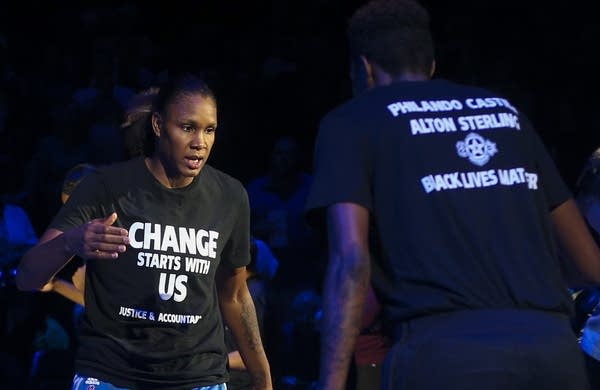Are we in a new era of African-American athletic activism?

Go Deeper.
Create an account or log in to save stories.
Like this?
Thanks for liking this story! We have added it to a list of your favorite stories.
Sports, race, politics and social change. LeBron James, Colin Kaepernick and Serena Williams have all made their opinions on recent social issues known.
Are the recent examples of African-American athletes speaking out on race and other social issues unique? Or is it reminiscent of earlier eras with Muhammad Ali, Paul Robeson and Jesse Owens?
"I think it's a little bit of both," said Larry Fitzgerald Sr., a sportswriter with the Minnesota Spokesman/Recorder. "You know, we're going through a change where so many athletes make so much money and achieve so much fame, then you mix in the social media ability that has popped up here in the last 10 plus years. And it's turned it into an incredible cycle where it's kind of forced a responsibility on a lot of the athletes who would sometimes probably choose to just lay back and not get involved."
Fitzgerald said that the motivation to get involved is also different now as opposed to the 60s when family of athletes were fighting in the Vietnam War, creating a stronger connection to the social issues of the time.
Turn Up Your Support
MPR News helps you turn down the noise and build shared understanding. Turn up your support for this public resource and keep trusted journalism accessible to all.
Samuel Freedman a journalist, author and professor at Columbia University agreed, saying that between the 60s and now the monetization of athletes has exploded, giving them a lot to lose.
Freedman used Michael Jordan's refusal to get involved in the racially charged race for North Carolina Senate in 1990 as an example of the modern athletes' tendency to "bend over backwards to not say anything."
"And so what's so impressive to me about a Lebron James or Colin Kaepernick is that these people are willingly putting their earning power at risk, they're putting their crossover stardom at risk to take these stands," Freedman said. "It's not easy, it comes with a price."
While he is heartened to see the recent activism by these athletes Freedman says it's also a "wake up call" for white people to get involved, and be supportive of African-American athletes.
Freedman and Fitzgerald discussed the future goals and possible outcomes of African-American athletes' involvement in activism at the University of Minnesota Humphrey School program moderated on November 15, 2016 by sociology professor Doug Hartmann.
To hear the whole discussion, click the audio player above.
MPR News Presents offers speeches, documentaries and debates — on the air weekdays from noon to 1 p.m.



